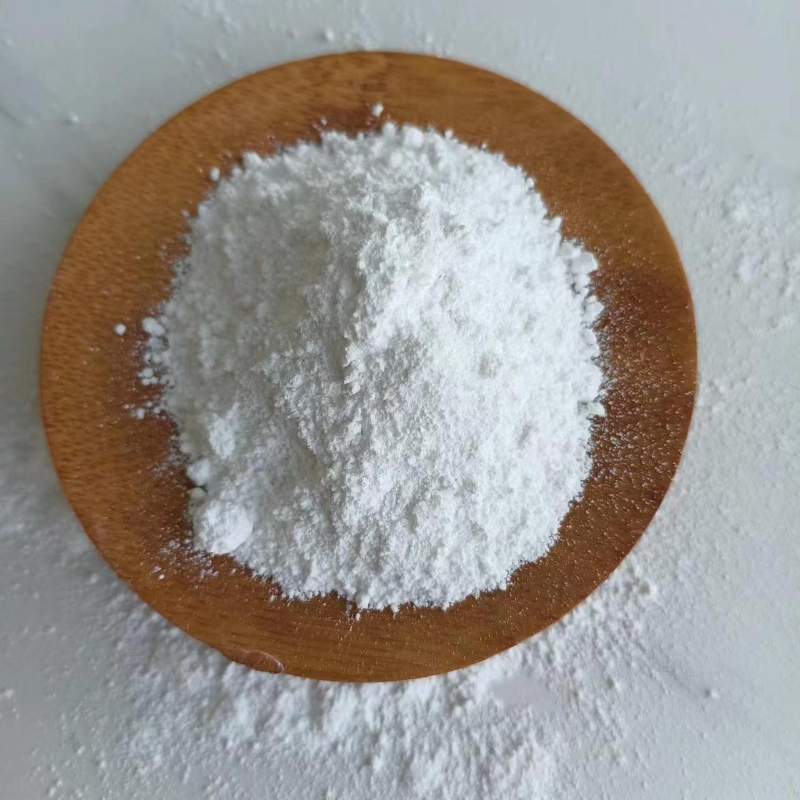-
Categories
-
Pharmaceutical Intermediates
-
Active Pharmaceutical Ingredients
-
Food Additives
- Industrial Coatings
- Agrochemicals
- Dyes and Pigments
- Surfactant
- Flavors and Fragrances
- Chemical Reagents
- Catalyst and Auxiliary
- Natural Products
- Inorganic Chemistry
-
Organic Chemistry
-
Biochemical Engineering
- Analytical Chemistry
- Cosmetic Ingredient
-
Pharmaceutical Intermediates
Promotion
ECHEMI Mall
Wholesale
Weekly Price
Exhibition
News
-
Trade Service
In order to enhance the clinical research exchange of gastrointestinal stromal tumor (GIST) and promote the development of PRECISION diagnosis and treatment, at 19:00 on August 29, 2022, the "Stone" Power Summit - Sino-foreign Expert Dialogue activity specially hosted by CStone Pharmaceuticals was successfully launched
Group photo of the expert group online
At the beginning of the conference, Professor Liang Han, Professor Shen Kuntang and Professor Zhang Yanqiao delivered opening speeches as the chairmen of the conference, and extended a warm welcome
Professor Liang Han said that although most OF GIST patients can benefit from imatinib neoadjuvant/adjuvant therapy, the poor response of patients with specific genotype GIST to imatinib is still an urgent clinical problem to be solved, and I hope that experts can brainstorm in this transnational conference to seek a more ideal personalized treatment plan
Professor Shen Kuntang said that enhancing international exchanges and learning and progress together will help clinical oncologists capture the unmet needs of NEW adjuvant therapy and adjuvant therapy of GIST, and explore valuable inspirations that can be applied to THE clinical practice of GIST in the future, benefiting GIST patients
Professor Zhang Yanqiao said that GIST is one of the most mature solid tumors in the development of targeted drug therapy, and in recent years, the development of targeted drugs such as alvatinib has continuously led the direction of precision treatment of tumors
Professors Liang Han, Shen Kuntang and Zhang Yanqiao made opening speeches
The conference entered the international dialogue session, and Professor DeMatteo, Director of Surgery at the University of Pennsylvania, gave a keynote speech
on "GIST Neoadjuvant Therapy and Adjuvant Therapy".
Professor DeMatteo is not only an international outstanding surgical expert, but also has made outstanding contributions
in the field of GIST translational research and clinical research.
Professor DeMatteo gave a lecture
Professor DeMatteo said that surgical resection often comes with greater risk
when GIST tumors grow in a special location or grow too large.
Neoadjuvant therapy is important
for narrowing the scope of surgery and preserving as much normal tissue as possible for patients.
When patients undergo neoadjuvant therapy, CT is performed every three weeks to see if the tumor continues to shrink, and surgical resection
can be performed after about 6 to 9 months.
The advantages of neoadjuvant therapy are that they reduce the amount of bleeding in patients, reduce the risk of surgery, and preserve normal tissue function for patients
.
However, a small number of patients have a low tolerance to it, need to reduce the dose, and if the tumor shrinks too quickly, or is at risk of rupture; Some patients do not respond well to imatinib, and the disease continues to progress, and effective benefits cannot be achieved, which is also a major problem
for neoadjuvant therapy.
GIST adjuvant therapy is a treatment for patients with postoperative GIST to reduce the likelihood of tumor recurrence and metastasis
.
Professor DeMatteo said that the target group of GIST adjuvant therapy is patients with tumor > 3 cm, because the tumor recurrence rate of < 3 cm is very low<b12>.
The risk of postoperative recurrence in patients with GIST can be assessed
using a line chart model or The Miettinen criteria.
Although adjuvant imatinib therapy can prolong recurrence-free survival (RFS) in patients with postoperative GIST for a certain period of time, patients usually develop drug resistance after 3 to 5 years
.
Professor DeMatteo said that whether imatinib can prolong the overall survival (OS) of patients needs to be further verified
.
For immunotherapy, Professor DeMatteo pointed out that TKI, including imatinib, can hardly cure GIST, so GIST clinical research needs to explore other treatment models
.
Some scholars have conducted phase II clinical studies of navulijuzumab monotherapy or combined ipicumab in patients with advanced GIST, and found that the disease progression of some patients with advanced GIST is still slower than expected
without the use of TKI.
Moreover, some patients with malignant gastrointestinal tumors respond better to immunotherapy, which may indicate that immunotherapy has great potential
in the field of GIST treatment.
At present, GIST immunotherapy related research is being carried out, and it has been found that compared with KIT mutant GIST, the immune gene expression of PDGFRA mutant GIST patients is higher, and it is expected that GIST immunotherapy can make more breakthrough progress as soon as possible
.
Experts talk together, study and refine thinking - to help GIST clinical precision treatment and progress
Under the chairmanship of Professor Li Jian, the meeting entered the expert discussion session, and the guests who participated in the discussion included Professor Gao Zhidong of Peking University People's Hospital, Professor Huang Zhen of Cancer Hospital of Chinese Academy of Medical Sciences, Professor Wang Ming of Renji Hospital Affiliated to Shanghai Jiao Tong University School of Medicine, Professor Zhou Ye of Fudan University Affiliated Cancer Hospital, and Professor Zhou Yongjian of
Union Hospital Affiliated to Fujian Medical University.
The panel of experts held an online discussion
>>>>Decisions on individualized GIST treatment plans that vary from person to person
Avatinib has significant therapeutic activity against PDGFRA D842V mutant GIST, and Professor DeMatteo said that when Avatinib was applied to GIST neoadjuvant therapy, the intervention
needed to be stopped 4 to 5 days before surgery due to the time required for drug clearance.
In view of the risk of postoperative recurrence in such patients, Professor Wang Ming pointed out that the use of avatinib for adjuvant therapy may benefit patients, but avatinib has not yet been approved for GIST adjuvant therapy, and further clinical evidence
needs to be sought through in-depth research.
Professor Zhou Ye said that patients with different genotypes of GIST respond differently
to imatinib.
Patients with KIT exon 11 mutation GIST are more sensitive to imatinib, so the use of imatinib for neoadjuvant therapy
is recommended clinically.
However, patients with wild-type (e.
g.
, SDH deletion) or primary KIT exon 17 mutation GIST do not respond well to imatinib, and neoadjuvant therapy for this part of the patient still faces great challenges
.
In this regard, Professor DeMatteo said that although there is a lack of effective neoadjuvant treatment options, wild-type GIST usually has obvious inertia, patients have slower disease progression, and primary tumors are more resonable; Primary KIT exon 17 mutation GIST is rare, and related studies have found that reperitinib and avatinib have a certain therapeutic effect
on KIT exon 17 mutation GIST.
The formulation of individualized treatment plans based on genotyping can significantly increase the benefits of patient treatment, and the standardization of genetic testing is an important part
of promoting the development of gist precision diagnosis and treatment in the future.
Looking at the past, the time for adjuvant treatment after GIST surgery is then considered
Based on past clinical work experience, Professor Huang Zhen pointed out that GIST patients will basically relapse after 3 to 5 years of imatit adjuvant therapy, which may indicate that the duration of imatinib adjuvant therapy recommended by the current guidelines is still insufficient
.
Professor Zhou Yongjian also proposed that some studies have shown that prolonging the duration of adjuvant therapy may benefit
patients.
In this regard, Professor DeMatteo stated that the current guidelines recommend adjuvant treatment of imatinib for 3 years, which is based on the results of previous clinical studies
.
While there are some patients in the real world who have benefited from higher RFS by extending the duration of imatinib adjuvant therapy, there are also some patients who are intolerant
to 3-year adjuvant imatinib therapy.
Needless to say, adjuvant imatinib therapy can delay recurrence in
most patients with GIST.
How to develop a more ideal personalized treatment plan for patients, so that patients can obtain higher survival benefits, further research
is needed in the future.
Professor Wang Ming questioned whether "prolonging the duration of imatinib adjuvant therapy will increase the likelihood of drug resistance in patients", and Professor DeMatteo cited previous relevant studies to say that there is no conclusive evidence to prove that the duration of imatinib adjuvant therapy is related
to the development of drug resistance in patients.
In addition to the adjuvant treatment time, Professor DeMatteo also pointed out that the cumulative time patients use imatinib may also be one
of the factors of concern.
Up and down, where gist immunotherapy belongs
Professor Li Jian regretted that the current RESEARCH on GIST immunotherapy has not made significant progress, but still has expectations
for the prospects of GIST immunotherapy.
Professor DeMatteo pointed out that T cell checkpoint blocking inhibitors are only the beginning of immunotherapy, PD-1, PD-L1 and other types of immunotherapy drugs are developing in full swing, and GIST immunotherapy still has great potential and is worth researchers to continue to explore
.
summary
At present, domestic and foreign guidelines recommend imatinib for neoadjuvant therapy and adjuvant therapy in PATIENTS with GIST, and solving the resistance of patients to imatinib is still the focus of clinical research on GIST
in the future.
Avatinib has a significant efficacy against GIST mutations in PDGFRA exon 18 (including D842V) and can be used for neoadjuvant therapy in such patients, and postoperative adjuvant therapy regimens still need to be established through further research; Special genotypes such as wild-type GIST patients still lack effective TKI drugs
.
In addition to the application of targeted drugs, GIST immunotherapy related research is in the ascendant, and it is hoped that GIST precision therapy will make greater breakthroughs as soon as possible and seek a brighter future
for GIST patients at home and abroad.
Edit: Wei Meng
Reviewer: Max
Typography: Wanderer
Execution: Traveller
END






